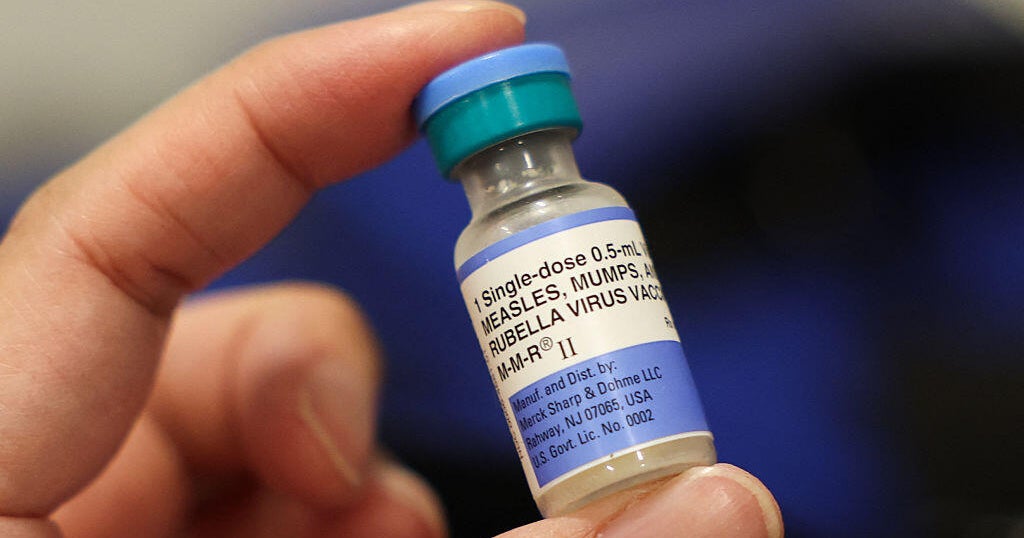What's the right age for babies to start eating solid foods?
Spooning up the first mouthfuls of baby food to a growing infant is an important milestone, but new research suggests many parents are doing it too soon. The study, published today in the Journal of the Academy of Nutrition and Dietetics, finds more than half of all babies in the U.S. are introduced to complementary foods — meaning foods or drinks other than breast milk or formula — earlier than they should be. Experts say that as a result, children may not be getting all the health benefits they should from nursing.
"Introducing babies to complementary foods too early can cause them to miss out on important nutrients that come from breast milk and infant formula," lead investigator Chloe M. Barrera, MPH, of the CDC's Division of Nutrition, Physical Activity, and Obesity, said in a statement. "Conversely, introducing them to complementary foods too late has been associated with micronutrient deficiencies, allergies, and poorer diets later in life."
The American Academy of Pediatrics (AAP) recommends breast-feeding exclusively, when possible, for about the first six months of a baby's life. Babies who are breast-fed for at least six months tend to develop healthier immune systems and are less likely to be overweight or to develop type 2 diabetes later in life. Some research suggests they may even grow up to have higher IQs.
"When you start giving a very young baby solid foods, it tends to fill them up and then they don't get potentially as much of the milk as they should be, and that is the primary source of nutrition whether they're formula or breast-fed. If they're taking less milk, they could potentially become nutritionally deficient in some of the nutrients that only the milk is going to give them," Dr. Stan Spinner, chief medical officer and vice president at Texas Children's Pediatrics and Texas Children's Urgent Care, told CBS News. Spinner was not involved in the new research.
According to the AAP, babies should first be introduced to solid foods at around the age of 6 months.
Breast-feeding should continue as well until the baby's first birthday, or longer if desired by both mother or baby. Infants who are bottle fed should only be given breast milk or formula in the bottle — not juice — unless otherwise directed by a physician, the AAP advises.
For the new study, researcher analyzed data on the food intake of more than 1,400 children, ages 6 months to 3 years, from across the United States. Parents and caretakers filled out surveys reporting how old infants were when they were first fed anything other than breast milk or formula, including juice, cow's milk, sugar water, baby food or anything else that the infant might have been given, even water.
The results showed that only one-third of the babies were introduced to complementary foods at the recommended age of about 6 months.
More than half were younger: about 16 percent received other foods before 4 months, and 38 percent at 4 to 5 months. About 13 percent of the infants were 7 months or older before they were given complementary foods.
Guidelines for when to introduce complementary foods have changed significantly over the past several decades. In the 1950s, solid foods were recommended at about 3 months, while the guidelines in the 70s told parents to wait until after 4 months. It wasn't until the 1990s when experts suggested waiting until babies were 4 to 6 months.
Spinner said the new study should encourage pediatricians to have more direct conversations with families about when babies should start with solid foods.
"Sometimes families may not be going to doctors on a regular basis so they may only know what other members of the family have done and have taught them to do," he said. "So I think pediatricians need to learn from this and be more proactive in having these conversations and making sure they understand why holding off on feeding solid foods until around 6 months is the right thing to do."
For the first time, the U.S. Department of Agriculture (USDA) and Department of Health and Human Services (HHS) are working on developing federal dietary guidelines for children under 2 years old. They're expected to be released in 2020.
"Efforts to support caregivers, families, and healthcare providers may be needed to ensure that U.S. children are achieving recommendations on the timing of food introduction," Barrera said, adding that including babies and toddlers in the 2020-2025 federal dietary guidelines "may promote consistent messaging of when children should be introduced to complementary foods."



